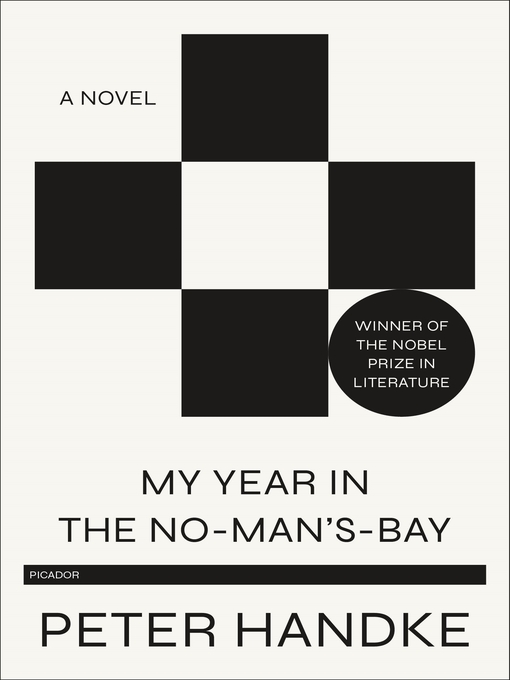Nobel Prize winner Peter Handke's autobiographical novel My Year in No-Man's Bay is "a meditation on two decades of a writer's life culminating in a solitary, sobering year of reckoning" (Publishers Weekly).
In his most substantial novel to date, Handke tells the story of an Austrian writer—a man much like Handke himself—who undergoes a "metamorphosis" from self-assured artist into passive "observer and chronicler." He explores the world and describes his many severed relationships, from his tenuous contact with his son, to a failed marriage to "the Catalan," to a doomed love affair with a former Miss Yugoslavia. As the writer sifts through his memories, he is also under pressure to complete his next novel, but he cannot decide how to come to terms with both the complexity of the world and the inability of his novel to reflect it.
-
Creators
-
Publisher
-
Awards
-
Release date
August 5, 1998 -
Formats
-
Kindle Book
-
OverDrive Read
- ISBN: 9781466806825
-
EPUB ebook
- ISBN: 9781466806825
- File size: 496 KB
-
-
Languages
- English
-
Reviews
-
Publisher's Weekly
August 3, 1998
"Almost fifty-six now, I still do not know myself," explains the brooding narrator of Austrian novelist/essayist Handke's (The Jukebox and Other Essays on Storytelling) sinuously beautiful latest novel, a meditation on two decades of a writer's life culminating in a solitary, sobering year of reckoning. Most recently, Handke wrote a highly subjective look at the turmoil in the former Yugoslavia (A Journey to Rivers); here, he returns to the often stiflingly solipsistic terrain familiar to his readers with an attempt (admittedly failed) at a "Germanic epic," a travel work about journeys of discovery. Finding the right place to live seems to be the major preoccupation of his narrator, an ex-lawyer who is fascinated by Roman law and the poetry of Friedrich H lderlin. Ensconced on and off over two decades in a house in a back-bay suburb of Paris, he has "renounced a life of action," content now to act merely as an observer, keeping the "chronicler's distance." He records discreet stories of his friends, referred to only by their descriptive names--"the singer," "the reader," "my son," etc.--yet finds that in the end he himself is the most interesting character in his narrative. Deserted periodically by his elusive wife ("the woman from Catalonia") and distrusted by his son ("the child"), he spends the final year (1999) taking walks, picking mushrooms and composing a suitable narrative. Despite attaining moments of stylistic lucidity worthy of Montaigne, the narrator more often comes across as gloomy and hostile. Nonetheless, numerous trenchant moments of insight make this work intriguing and provocative. Winston's translation is impeccable.
-
Loading
Why is availability limited?
×Availability can change throughout the month based on the library's budget. You can still place a hold on the title, and your hold will be automatically filled as soon as the title is available again.
The Kindle Book format for this title is not supported on:
×Read-along ebook
×The OverDrive Read format of this ebook has professional narration that plays while you read in your browser. Learn more here.

